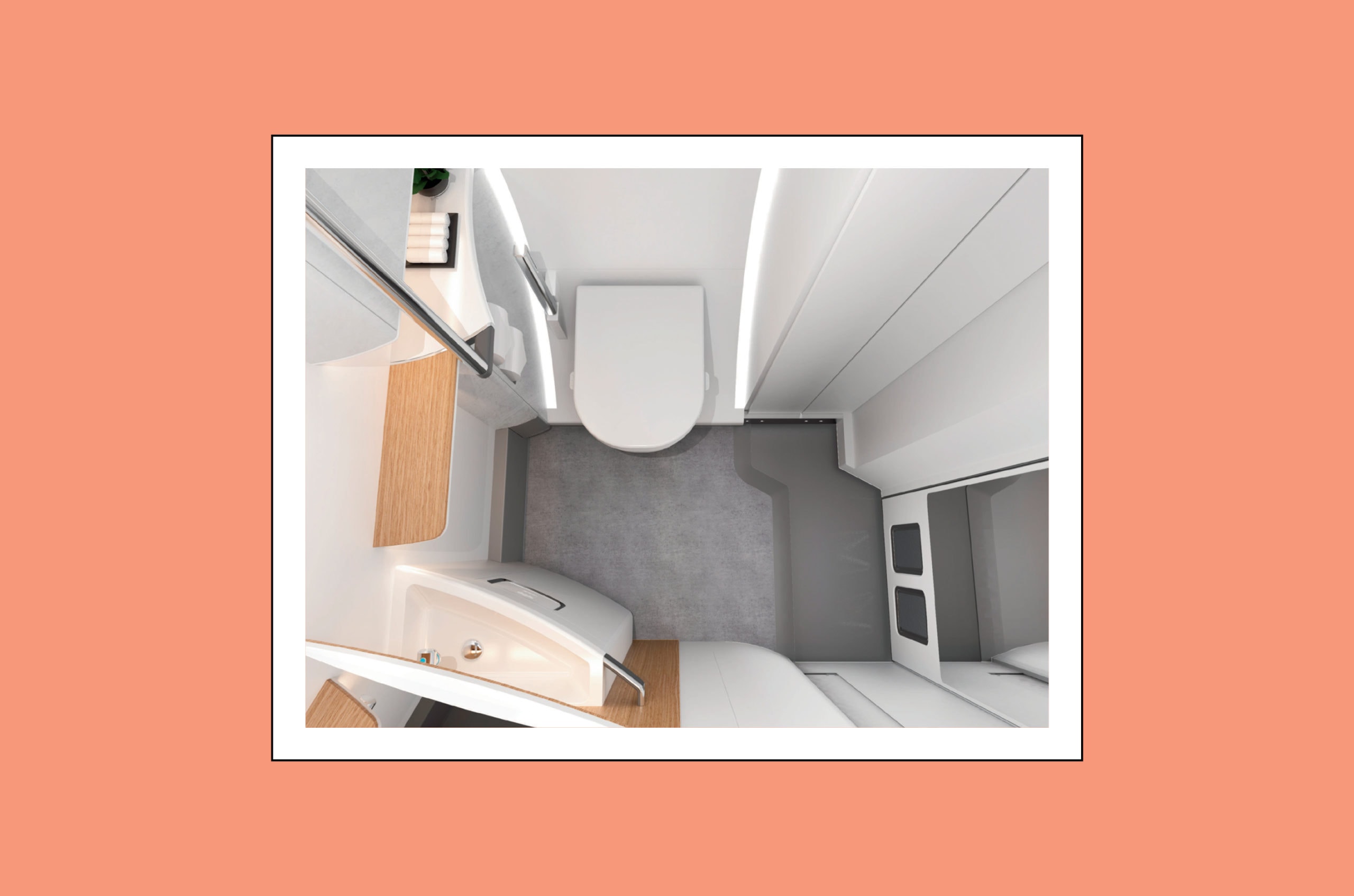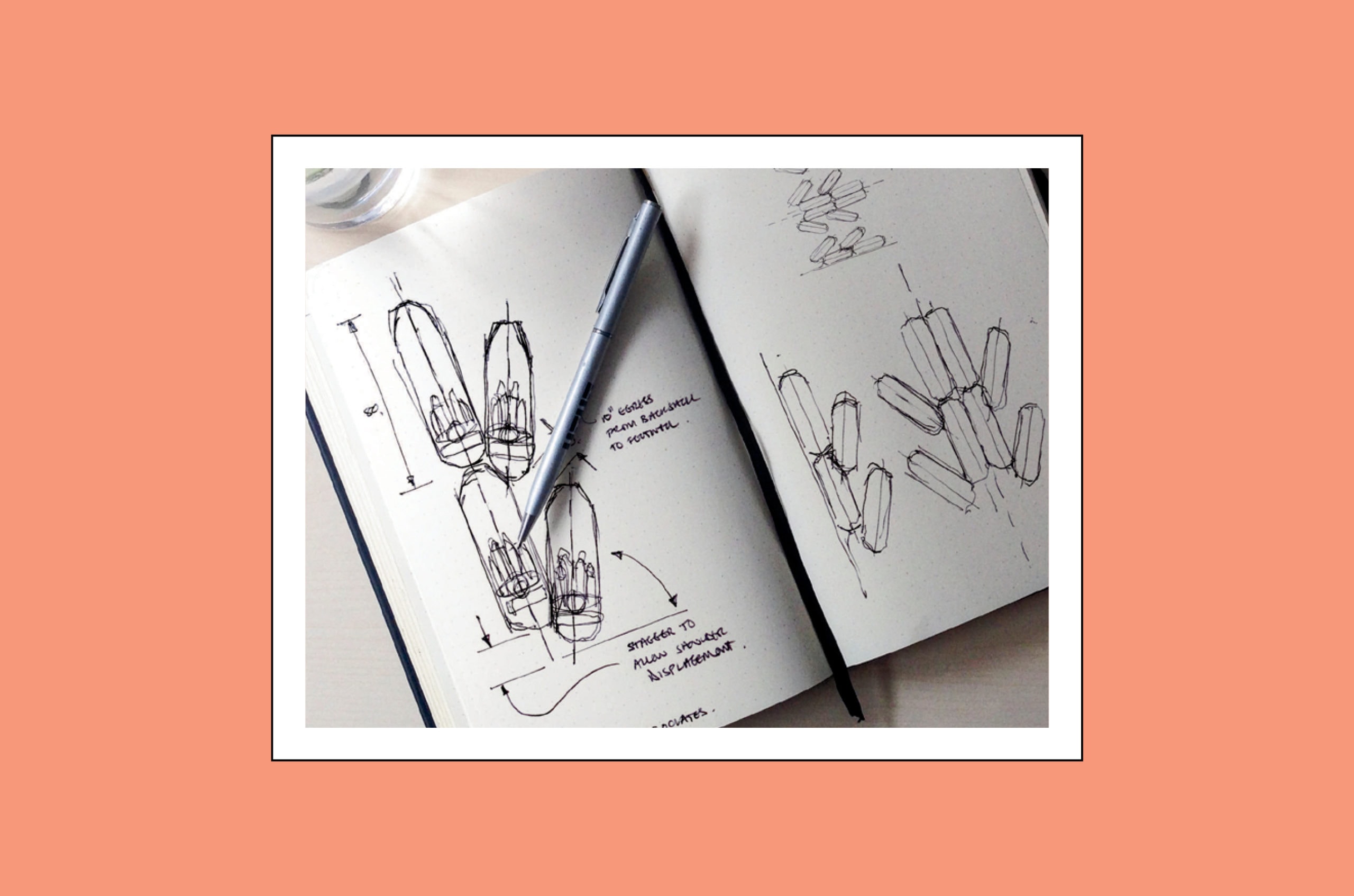How Acumen Makes Its Mark in the Congested Patent Space
Share

In It Takes Ten, leaders from 10 of the industry’s top design houses share their thoughts on the creative process, sources of inspiration and the many diverging strategies that guide their work. In this section, Acumen discusses protecting one’s intellectual property.
Contemplative train scenes abound in literature and cinema. They’re favorites of Leo Tolstoy and Virginia Woolf, and it’s no coincidence that Steve Martin’s character has his epiphany in Planes, Trains and Automobiles while gazing out the train window as the world torpedoes by. It was under similar conditions, on his way home one night, that Ian Dryburgh, CEO and founder of Acumen, first sketched out his idea for a more space-efficient business-class cabin.
“Like many designers, I am always scribbling down ideas in my notebook, as I was that evening on my way home,” Dryburgh recalls. “Returning to the studio the next day, I decided to take a huge gamble to patent and develop the design as part of Acumen’s own intellectual property portfolio. We risked considerable funds with no guarantee it would pay off,” he says. Just a few years later, and the IP is the basis of United Airlines’ Polaris business-class seat and Safran’s Optima, now on Air France’s Airbus A350s.

The firm holds more than 20 aviation patents, something Dryburgh says distinguishes it from the competition. Acumen’s most recently granted filing, dated December 10, 2019, proposes a seating arrangement for passengers with disabilities. “For too long, passengers with reduced mobility (PRMs) have had to endure a flying experience that can only be described as undignified and inhumane,” Dryburgh says.
Among the cabin elements Dryburgh believes need to be addressed for PRMs is the lavatory. Working alongside ST Engineering, Acumen conceived ACCESS – the world’s first expanding PRM aircraft lavatory. The patented design’s moving wall offers 40 percent more space to accommodate a passenger in a wheelchair and their caretaker, and when unexpanded has the same footprint as a standard lavatory module. “Having met and listened to these passengers about their experiences, we heard first-hand how many of them felt forced to starve and dehydrate themselves before boarding so they did not have to use the facilities,” Dryburgh says.
Despite Acumen’s rich patent history, Dryburgh acknowledges that design doesn’t have to be revolutionary to be impactful. Taking as an example the new economy cabin for All Nippon Airways, which features non-repeating traditional Japanese patterns woven into the fabric of each seat, he says, “Not every interior design requires a high level of protection to give passengers something original.”
“It Takes Ten” was originally published in the 10.2 April/May issue of APEX Experience magazine.


